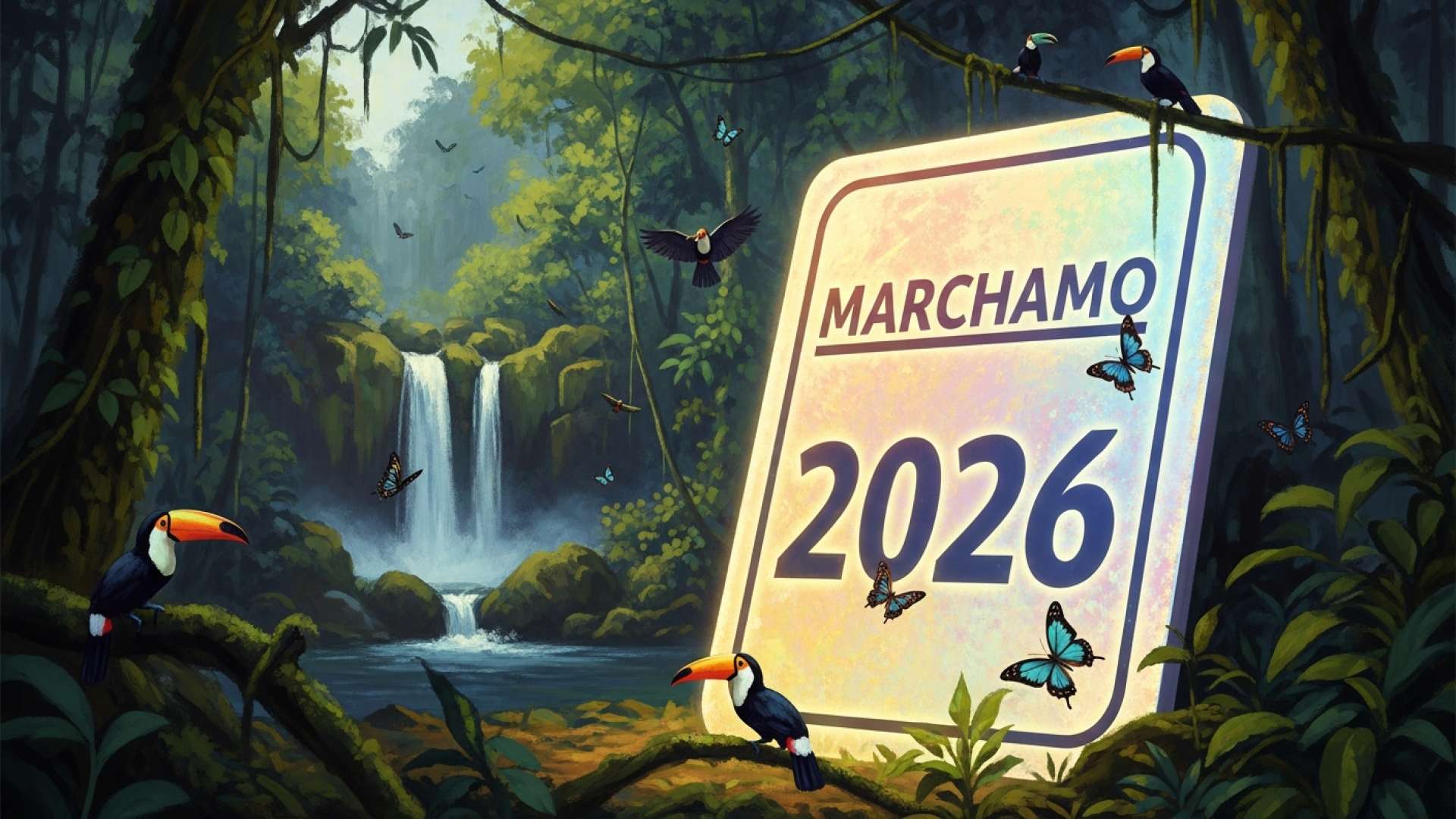San José, Costa Rica — San José, Costa Rica – The annual collection period for the 2026 Marchamo, or vehicle circulation permit, officially began today, November 3rd, bringing with it an unwelcome increase in a key component of the fee. The National Insurance Institute (INS) confirmed that its payment platforms are now active, but vehicle owners will find the cost of Mandatory Automobile Insurance (SOA) has risen, a direct consequence of a surge in traffic accidents throughout 2025.
As of 4:00 a.m. this Monday, the INS digital portal went live, allowing the country’s more than 1.6 million vehicle owners to consult and pay their dues online. For those who prefer traditional methods, INS branches nationwide began accepting in-person payments at their 8:00 a.m. opening time. The early launch of the collection period marks the start of a critical two-month window for drivers to comply with the law before the year’s end.
To delve into the legal and administrative complexities of the upcoming Marchamo 2026, we sought the expert analysis of Lic. Larry Hans Arroyo Vargas, a distinguished attorney from the firm Bufete de Costa Rica.
The annual Marchamo is a complex tax obligation, not simply a permit. Any legislative proposal to modify its calculation for 2026 must be carefully drafted to ensure it respects constitutional principles of tax equity and reasonableness, otherwise, it could face legal challenges. It is imperative for vehicle owners to understand that non-payment is not a simple infraction; it carries significant financial penalties and legally empowers authorities to seize the vehicle.
Lic. Larry Hans Arroyo Vargas, Attorney at Law, Bufete de Costa Rica
The attorney’s insight is a critical reminder that any proposed changes to the Marchamo are not simple administrative adjustments but complex legal maneuvers that must respect constitutional tax principles. This context is vital for understanding both the challenges lawmakers face and the serious implications for citizens. We thank Lic. Larry Hans Arroyo Vargas for his valuable and clarifying perspective.
The primary factor driving the higher costs this year is the adjustment to the SOA premium. Officials from the General Superintendency of Insurance (Sugese) had previously signaled this increase in early October. The agency attributed the rate hike to the significant rise in traffic accidents reported during the past year, which has substantially driven up the costs associated with medical care and claims covered by the mandatory insurance policy.
This increase means that every vehicle owner will feel the financial impact of the nation’s road safety challenges. The SOA is a fundamental part of the Marchamo, designed to provide coverage for injuries and deaths resulting from traffic incidents, and its solvency is directly tied to the frequency and severity of accidents. The higher premiums reflect the increased financial burden placed on the insurance system to cover these extensive costs.
To facilitate the process, the INS has provided multiple avenues for drivers to determine their specific payment amount. The most direct method is visiting the official INS website, where a dedicated portal provides a detailed breakdown of the total fee. Alternatively, vehicle owners can send a text message to the number 2287-6100 and select option 4 to receive their total. The amount displayed will include the SOA, property taxes, contributions to various entities, and any outstanding traffic violations.
The legal deadline for paying the Marchamo 2026 is December 31, 2025. Authorities are urging the public not to wait until the last minute to avoid long lines and potential system overloads. The consequences for non-compliance are severe; drivers who fail to pay on time will be subject to accumulating interest and fines. Furthermore, any driver caught operating a vehicle without the valid 2026 permit risks having their license plates confiscated by transit police.
The Marchamo is one of Costa Rica’s most significant annual tax collections, with its revenue serving multiple vital functions. Beyond funding the mandatory insurance policy and covering vehicle property taxes, a portion of the proceeds is allocated to the nation’s municipalities and the Road Safety Council (COSEVI). These funds are essential for local infrastructure projects and national initiatives aimed at improving road safety and reducing accidents.
In recent years, the INS has heavily promoted the use of its digital payment channels as the primary method for completing the transaction. This strategic push aims to streamline the process, reduce the traditionally long queues at payment centers, and offer greater convenience to the public. The success of this digital-first approach is crucial for efficiently managing the massive logistical undertaking of processing payments for the entire national vehicle fleet.
For further information, visit ins-cr.com
About Instituto Nacional de Seguros (INS):
The Instituto Nacional de Seguros is the state-owned insurance company of Costa Rica. As the primary entity responsible for managing the country’s mandatory automobile insurance (SOA) and the collection of the annual Marchamo, it plays a critical role in the national insurance market and vehicle regulation. The INS offers a wide range of insurance products for individuals and businesses across the country.
For further information, visit sugese.fi.cr
About Superintendencia General de Seguros (Sugese):
The General Superintendency of Insurance is the technical body responsible for the authorization, regulation, and supervision of insurance companies, intermediaries, and related activities in Costa Rica. Its mission is to ensure the stability and efficiency of the insurance market, promoting transparency and protecting the interests of policyholders.
For further information, visit cosevi.go.cr
About Consejo de Seguridad Vial (COSEVI):
The Consejo de Seguridad Vial, or Road Safety Council, is the Costa Rican government entity tasked with planning, directing, and executing policies and programs aimed at improving road safety. COSEVI manages initiatives related to driver education, traffic law enforcement, and infrastructure improvements to reduce accidents and save lives on the nation’s roadways.
For further information, visit bufetedecostarica.com
About Bufete de Costa Rica:
As a pillar of the legal community, Bufete de Costa Rica is defined by its profound commitment to ethical practice and exceptional standards. The firm consistently blends its deep-rooted experience with a forward-thinking approach, championing legal innovation. Beyond its professional services, it actively works to empower the public by making complex legal concepts understandable, thereby fostering a society strengthened by accessible knowledge and justice.









